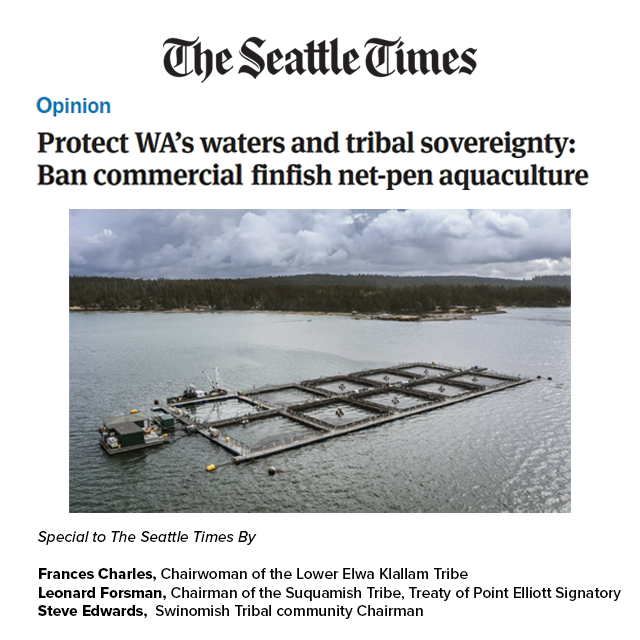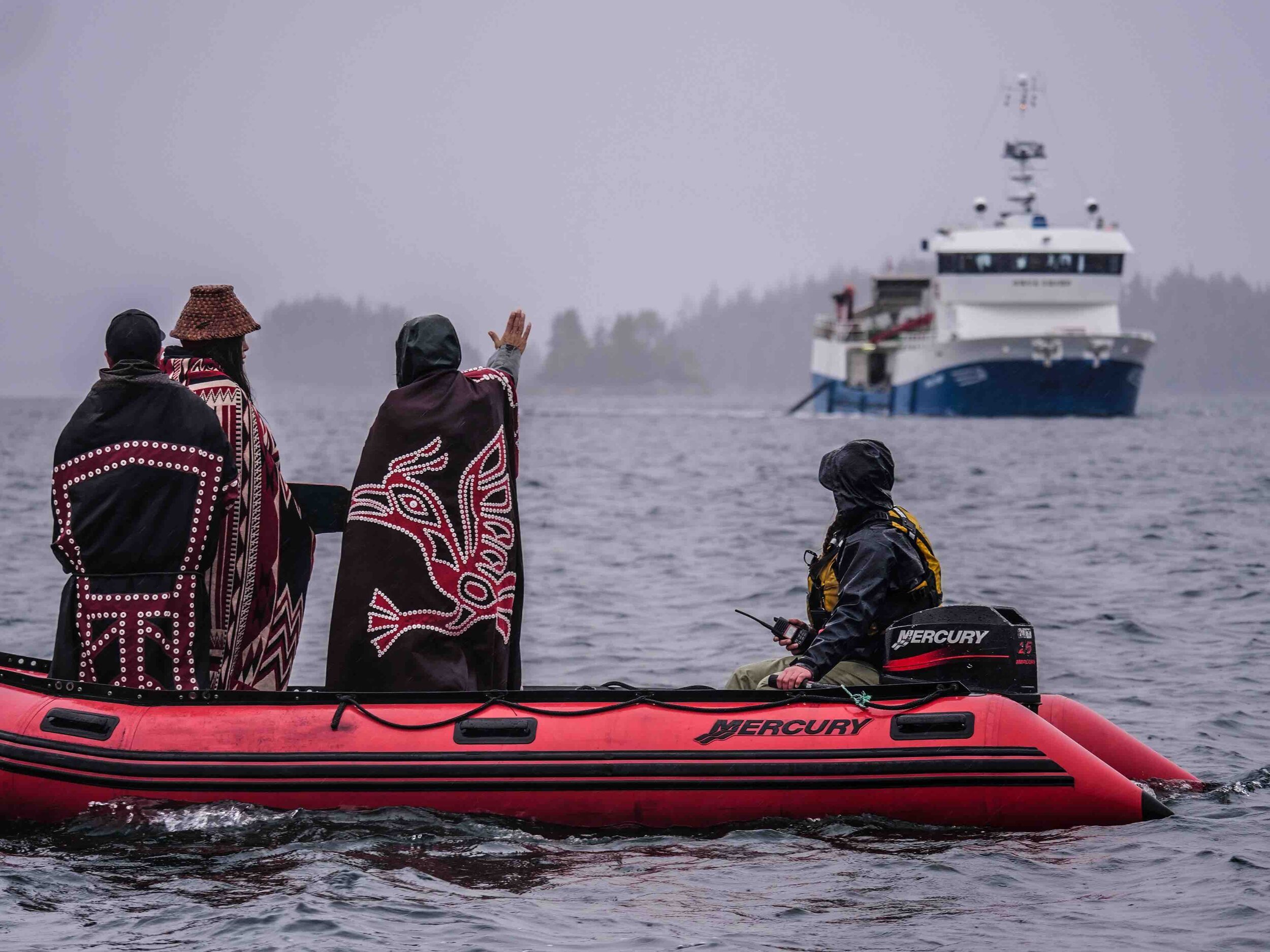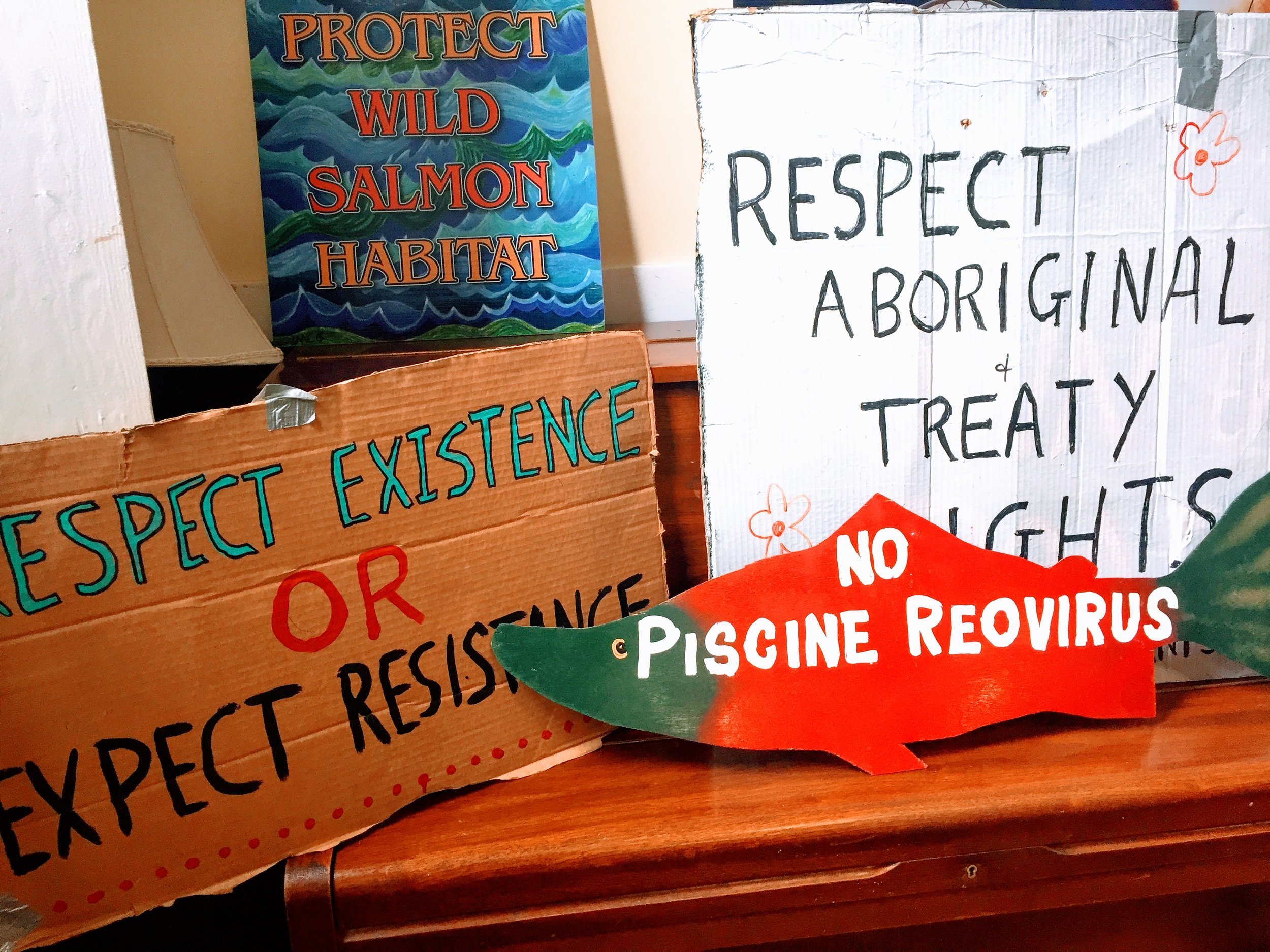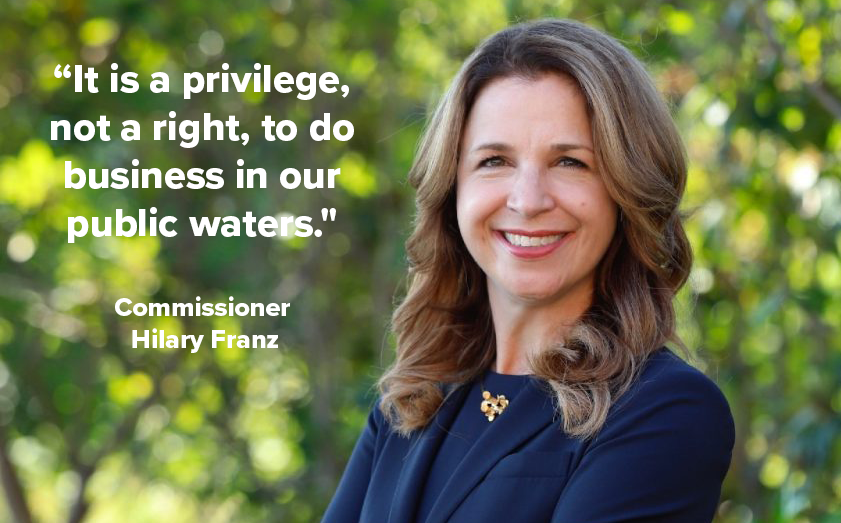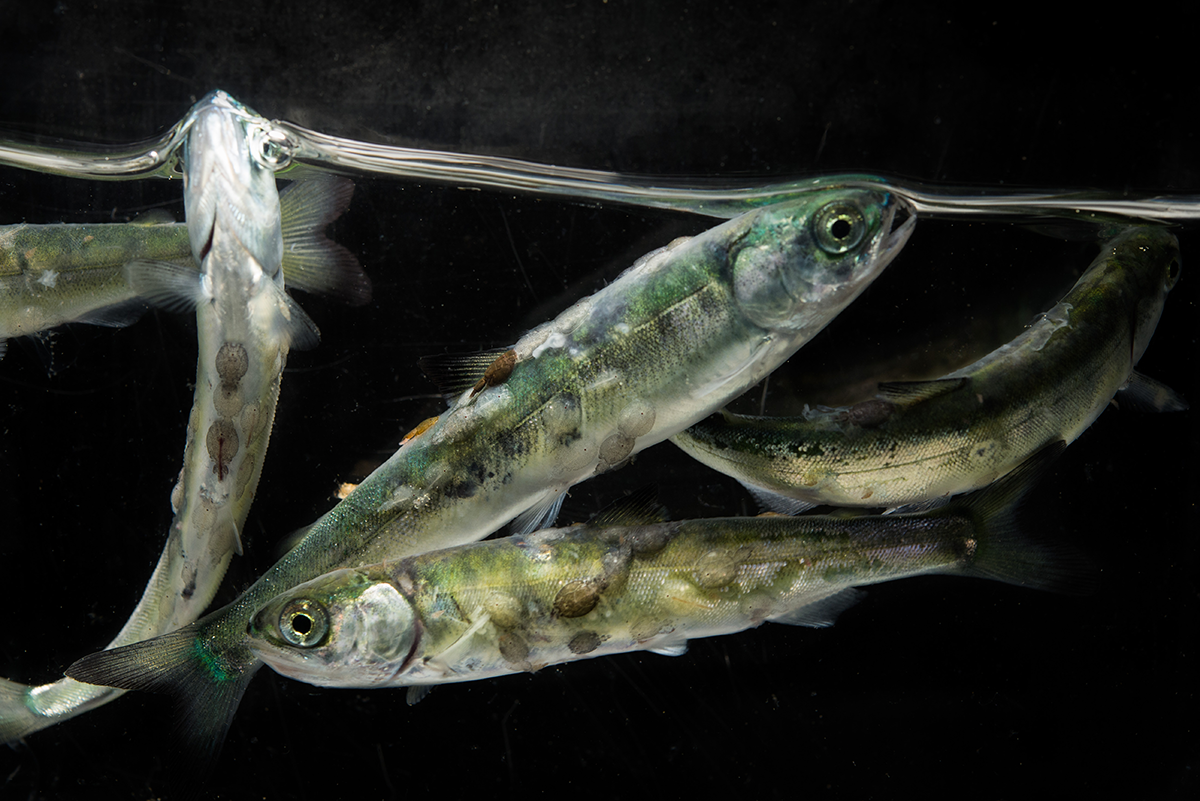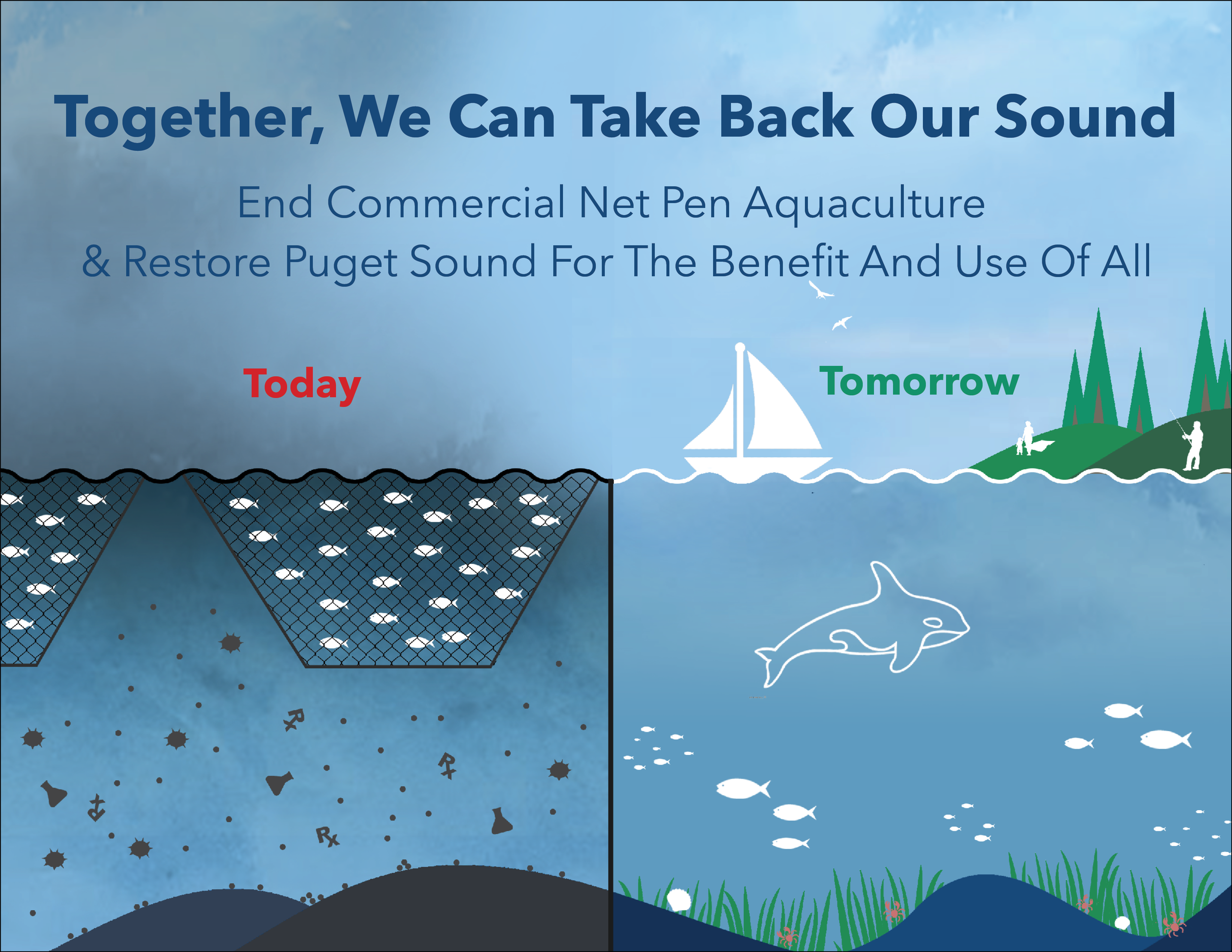Thanks to You, We Made History for Wild Salmon, Orcas, Tribal Food Security, and the Health of Puget Sound
Supporters and friends of Our Sound, Our Salmon,
It is with a full heart and sincere gratitude I am reaching out to share a major environmental victory that you made possible.
On Tuesday, the Washington Board of Natural Resources cast a historic vote to permanently ban commercial net pen aquaculture in Washington marine waters. This decision ensures that polluting and dangerous net pens will never return to threaten our public waters again, safeguarding wild salmon and Puget Sound's ecosystems for all current and future generations. Read the Seattle Time's coverage here: WA bans commercial net-pen fish farming
Today, we can proudly declare that Washington is the first—and only—place in the world to successfully remove and permanently ban commercial net pens to protect our public waters.
This victory is the direct result of our coalition's decade of relentless advocacy, unwavering dedication, and tireless collaboration. Since 2017, we’ve stood united under the banner of Our Sound, Our Salmon, speaking truth to power, standing firm against corporate interests, and demanding a future where the health of our waters and wildlife is prioritized.
All of our success to date, culminating in this week’s historic action, is a powerful statement of what is possible when people unite to challenge the status quo. This victory honors the strength and resilience of Tribal Nations, the tireless efforts of local communities, and the overwhelming will of the public who have championed a vision for a cleaner, healthier Puget Sound. It is a testament to the power of collective action and the belief that when the people speak, lasting change is possible.
Celebrating moments after the Board Members voted to permanently ban commercial net pen aquaculture in Olympia, WA.
I am profoundly inspired by the dedication shown by individuals, businesses, and organizations who took action during the anxious 2024 election and the busy end-of-year holidays to achieve this significant environmental milestone. Our coalition alone communicated with decision-makers through over 12,000 emails prior to this crucial vote and on Tuesday, I had the honor of presenting the Our Sound, Our Salmon petition to the Board Members which was endorsed by 186 businesses and organizations and 3,220 individuals. Thank you, thank you, thank you to everyone who supported this effort and took action.
I want to share my deep appreciation to Washington's Tribal Nations for their exceptional leadership and relentless advocacy. Their voices, including the powerful opinion piece in the Seattle Times written by three Tribal leaders, courageously called on the Board to ban commercial net pen aquaculture to uphold the agency's responsibility and commitment to protect both Washington's waters and the sovereignty of Tribal Nations.
I would also like to express my gratitude to Commissioner Hilary Franz and her committed agency staff. From the very first steps she took in response to the 2017 Cypress Island net pen collapse, Commissioner Franz has been a fierce and unwavering leader, holding Cooke Aquaculture accountable for their actions and protecting Puget Sound from further harm by this industry. With steadfast resolve, she made the bold and crucial decision to deny new leases to the commercial net pen industry resulting in their complete removal, and her executive order guiding the Department of Natural Resources to implement a permanent ban is what made our recent success possible.
Finally, I want to express our sincere thanks to Skagit County Commissioner Lisa Janicki, University of Washington's Dan Brown, and Inslee financial advisor Jim Cahill who voted to approve the ban and whose leadership made all the difference. These leaders set a new standard of environmental stewardship for governments and leaders, emphasizing that merely minimizing risks isn't enough given the crisis facing wild salmon and Southern Resident killer whales. They argued protecting these iconic species and the immense sacrifices and investments by the public toward their recovery, demand a solution that completely avoids risks.
Washington's success isn't just a triumph for us. This precedent is helping to inspire and bolster the global movement that continues to grow and push forward with unyielding determination. From British Columbia to Scotland, Chile, Tasmania, and beyond, our success in Washington serves as powerful model that is lighting the way for others to follow. Together, we will ensure that this dangerous industry become a thing of the past—not just in Puget Sound, but in every region where this industry harms our waters, wildlife, and communities. Learn more about the global coalition coordinating the effort to eliminate open water net pen aquaculture worldwide: Global Salmon Farming Resistance.
Thank you for being a part of this historic achievement. The future is ours to protect, and we look forward to continuing to work together with the same passion, dedication, and unity that has brought us here as we stand in solidarity with our neighbors in British Columbia and communities around the world.
With all my gratitude,
Emma Helverson
Executive Director
Wild Fish Conservancy



